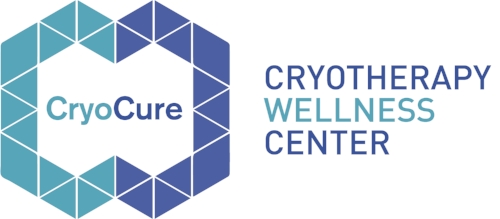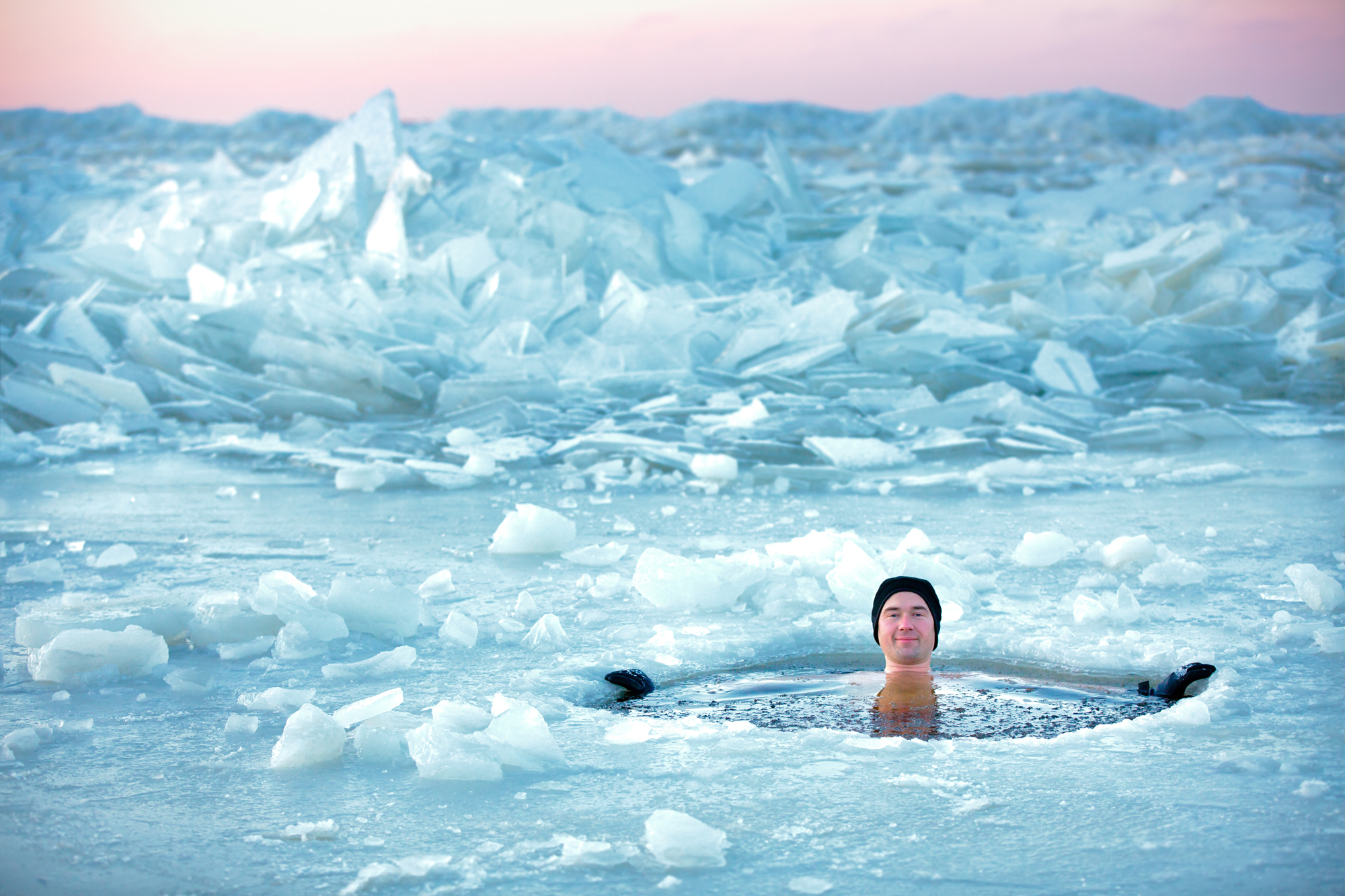The word “Cryotherapy” originates from the Greek words: “cryo”-cold and “therapia”-cure. It is a curative health treatment involving extremely low temperatures (below -130C/-266F).
Whole Body Cryotherapy was developed by Dr. Yamaguchi in 1978. He treated patients suffering from rheumatoid arthritis with short periods of exposure to below freezing temperatures. These procedures had favorable results for pain management. Dr. Yamaguchi found he could significantly reduce the soreness and pain his patients felt during manipulation of their joints. The rapid decrease in temperature of the outer layer of the skin led to the immediate release of endorphins and therefore lessened their discomfort.
As a result of thorough and sustained research, Dr. Yamaguchi and his associates came to the conclusion that Cryotherapy was not just beneficial for short-term joint pain alleviation, but it affects the body long-term on three different levels:
• The Biochemical Level – the circulatory system
• The Energy Level – the energy meridians
• The Information – the nervous system
The Biochemical Level
When inside the cryo-chamber, where ambient temperature is usually around -140C/270F, the human body is rapidly exposed to extremely low temperatures and the skin surface temperature is quickly cooled to approximately -1C/32F for a short period of time (2-3 minutes). When the skin temperature reaches freezing for a few moments, cold sensors in the skin send a very strong signal to the brain that the organism’s life might be in danger. In an innate response, the brain gives orders to all peripheral parts of the body to constrict blood vessels, muscles, and tissue in order to send the blood to the core of the body to protect the vital organs. As the blood circulates in the “internal cycle”, it’s being enriched with oxygen, enzymes and nutrients. Upon completing the treatment, when clients step out of the cryo-chamber, the enriched blood actively circulates throughout the body. It supports and nourishes all of the internal organs and all crucial life processes are accelerated. If the performance of any of the organs was low or impaired, these deficiencies are being remedied under the strong, enriched blood flow effect. Several treatments will even lead to an increase in hemoglobin count.
Enriched blood creates favorable conditions for internal organ regeneration, for expelling of toxins from subcutaneous layers, for all the cell renewal process, replacement of damaged cells and elimination of dead cells from peripheral tissues – i.e. rejuvenation of the body at the cellular level.
The Energy Level
Being an acupuncturist and a practitioner of Traditional Chinese medicine, I have been able to apply my knowledge of how acupuncture and Cryotherapy work together. My experience with these two holistic health approaches gave me the opportunity to make a strong connection between the two modalities.
As part of Traditional Chinese Medicine and Acupuncture study theory, the energy level of the human body is made up of a network of energy meridians, similar to the circulatory system on the Biochemical Level. There are 12 main meridians and many lateral meridians within the human body, together referred to as the energy network of the human body. When the energy flow in any of the meridians is blocked, some organs do not receive enough energy to function properly.
How does WCT increase this energy flow to the body? We know from any physics curriculum that if we take a sufficiently long wire, and warm one end of it while cooling the other, the temperature difference leads to an electric current in the wire. The same thing happens to the human energetic system during WCT treatment. When the temperature of the skin surface drops to 32*F, while the body core temperature is 98.6*F, the 68.6*F difference is sufficient to cause a strong flow of energy in the meridians, thereby restoring energy flow where disruptions may have been present. In this case, WCT is used as a preventive and corrective method, as it stimulates the energy flow in the human body, and allows people to stay healthy. Aging is the immediate result of insufficient supply inside the body. Restoration of the energy flow helps to restore the body physically, and can prevent its premature aging.
To summarize WCT’s effect on the first two levels of the body, we can say this: WCT helps enrich the blood and supply it to all internal organs and peripheral parts of the body by making sure that the organs have all the necessary energy to make full use of these materials – without energy, no beneficial processes can occur.
The Informational Level
The Information Level consists of the intricate network of the body’s nervous system, through which electric signals are sent to and from all parts of the body. If cell division does not follow the pattern determined in the information level of the body, the cell begins to mutate. An autoimmune system disease is one situation in which the body cannot distinguish its own tissues and substances from foreign elements and attacks itself, thinking it’s defending itself against intruders. A common example of an autoimmune disease is psoriasis.
In the Informational Level, the brain sends signals to all parts of the body through the nervous system in order to determine the extent to which each part of the body is compromised. When the brain, in response to perceived critical conditions during a WCT procedure, surveys all body parts and analyzes the returned signals, it creates a complete up-to-date picture of the body’s state of health – which the brain requires to properly allocate resources to ensure the vitality of the body.
Why Cryotherapy is more effective than an Ice Bath?
Ice baths have been regularly used in professional sports for rehabilitation of athletes with injuries. But the Ice Bath affects the body in a completely different way than Cryotherapy. Cryotherapy has been shown to be much more beneficial and with no negative side effects. What are the different effects of the Ice Bath and Cryo-chamber? First, during the first 15-20 minutes of the ice bath, tissue freezes quite deep and frozen muscles temporarily lose capacity, as muscle tissue needs time to return to normal. In contrast, Cryotherapy does not actually freeze muscle tissue, it only tricks the brain by creating a powerful illusion of that. A big difference between the two treatments lies in the fact that, when gradually cooled in an ice bath, the body’s response is to try to warm as much blood as possible in its core in order to send it to peripheral parts to maintain the warm skin surface. This process continues, trying to make the body capable of generating sufficient heat to maintain warmth in the peripheral body parts. But when the heat is no longer enough, the muscles start to congeal and freeze, beginning at the skin surface and continuing inward to the body’s center. For this reason, longer stays in an ice bath can cause hypothermia and can lead to death, as it is very difficult to stop this process once it has begun.
But in the Cryo-chamber, the skin surface reaches temperature of -1C/32F in just 30-40 seconds while the surrounding temperature is up to -150C (this is impossible in an ice bath where the temperature cannot drop lower than -5C/41F). This process triggers a protective response of the brain, tricking it to interpret this process as a critical situation for the internal organs. As a result, the brain prioritizes protection of the internal organs, as there is not enough time to save the peripheral extremities. This results in constriction of blood vessels and capillaries to keep the body’s core temperature from dropping – triggering the process described above – sending the blood to internal organs and enrichment of blood. Lastly, while in the ice bath, oxygen supply to the skin’s surface is interrupted, and it causes skin injury if the procedure is too often repeated.

